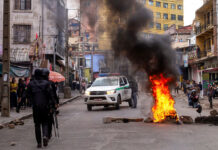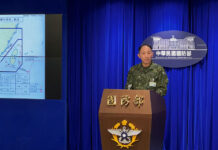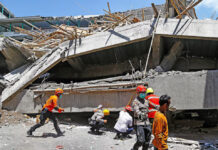Amid towering shipping cranes and rows of stacked containers, a new front has opened in Morocco’s growing resistance to its normalization of ties with Israel: the nation’s ports.
For more than a year, protests have surged across Moroccan cities in response to the government’s 2020 decision to re-establish diplomatic relations with Israel.
Now, activists are turning their sights to the country’s critical maritime gateways, demanding they be closed to vessels linked to military trade with the Israeli state.
In a recent protest at a Moroccan port, 34-year-old agricultural engineer Ismail Lghazaoui joined a wave of demonstrators waving Palestinian flags and chanting “Reject the ship!”
The protest targeted a vessel carrying components for fighter jets—parts shipped from Houston, Texas, and reportedly linked to the U.S. Defense Department’s Security Cooperative Participant Program.
The protests have deepened a rift between Morocco’s political leadership and a growing number of citizens who oppose what they see as complicity in Israeli military aggression.
Activists are urging port officials to follow Spain’s lead and block military shipments destined for Israel.But dissent has come at a cost.
Lghazaoui knows that firsthand. After criticizing Morocco’s Israel policy online and posting about Maersk, he was arrested last year, beaten by plainclothes officers during a rally in Casablanca, and sentenced to a year in prison for “incitement.” He ultimately served two months behind bars and two on parole.
“They try to silence people,” Lghazaoui told the Associated Press. “They were using me to dissuade people or to push people away.”
He remains undeterred. His return to the protest lines last month signals that the movement is gaining strength rather than backing down.
By targeting ports and shipping lanes, activists are striking at the crossroads of foreign policy, commerce, and defense. What began as marches in city squares is now a campaign to disrupt the flow of arms and challenge the quiet machinery of international military cooperation.
Whether the Moroccan government will bend to the mounting public pressure remains uncertain. But the streets—and now the ports—are speaking loudly.
Written by Kelly Were.













